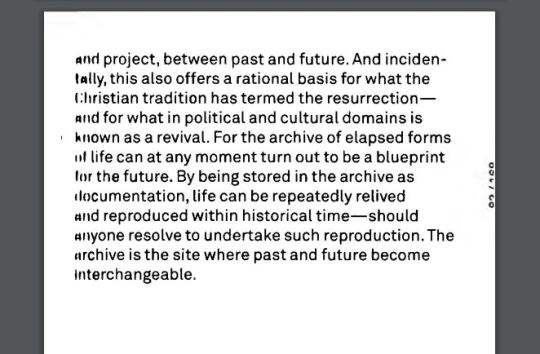#boris groys
Note
Whether yours or something you've read, what's the best definition of art/a work of art?
If definitions come in descriptive and normative forms—descriptive: finding the essence of all the disparate phenomena we do or could call art; normative: deciding what unites the limited set of phenomena that deserve the name of art—then I believe a descriptive definition may be impossible.
Art could be almost any practice or object, because any practice can be done and any object made artfully. Whole lives have been described as works of art, as have casual gestures of the hand. Art may just refer to some latent potential for shaped gratuitous interest (i.e., beauty) in the whole human-made world—except that some believe animals capable too, as the birds and the whales do sing, while monkeys and elephants have been taught to paint. Art may just be life transcending itself, reflecting itself, working on itself: the final secret of whatever is the principle of vitality, "the force that through the green fuse drives the flower." "The art itself is nature."
All very psychedelic, but we like to make judgments, too, and even need to do so, because we have only so many hours in the day, only so much room in the gallery, only so many weeks on the syllabus. We need, therefore, a normative definition. Most of the modern ones since Kant have fixed on art as "uselessness," which partially inspired my word "gratuitous" above, i.e., art is whatever is not practical, whatever exceeds and therefore both redeems and judges the prevailing utilitarianism of the modern world. As Gautier's original l'art pour l'art manifesto quips, elevating art over use, "The most useful room in the house is the lavatory."
Contemporary theorist Boris Groys has historicized this idea with his slogan "art emerges as the death of design." In other words, before the modern period, art was reduced to its use, largely as propaganda: it ornamented and inculcated the ideas of the ruling classes, from the bard celebrating aristocratic heroes in epic song to the builder fashioning cathedrals to cow the illiterate parishioner on behalf of the Catholic Church to the painter making portrait after portrait of the old regime's elite. Art, therefore, was no more than design, a constrained set of protocols for elaborating and augmenting social power. Art in the modern sense of the gloriously inutile was only invented with the French Revolution, when the radicals, instead of destroying the design of the old regime—throwing the portraits on a bonfire; smashing the altarpieces with a hammer—put them into museums, to be admired for their beauty (complexity, intricacy, intelligence...in short, for their "gratuitous" humanity) now that their inequitable social function had been stripped from them. Art, then, is whatever's left over after the propagandistic element of a piece of design has drained away, which is why we still take pleasure, for example, in Dante, though we don't share his views—and I don't just mean his social attitudes (homophobic, Islamophobic, etc.), but even his understanding of biology or cosmology.
I am persuaded by Groys's historicized normative judgment that art is the death of design, though it does create a paradoxical choice for the modern artist: you can either make a work of design, i.e., propaganda, in the knowledge that only what exceeds its propaganda function will finally matter, or you can try to make a work that has no propaganda function at all. The first choice leads to the slight air of bad faith that always hangs around even the very best social and political art, the double sense that an urgent problem is being exploited and that art itself is being betrayed; while the second choice leads to the purity spiral of art without content, all those blank canvasses and boxes piled on the floor that, as someone once joked, must come pre-installed in the modern art museum.
There is no solution to this dilemma, no way out of this paradox. (Groys: "only self-contradictory practices are true in a deeper sense of the word.") As the French Revolution and surrounding developments made it possible for art to emerge as the death of design, so I expect present and future historical or technological circumstances to alter the terms of art once again. We will just have to see what opportunities and challenges arise. Groys believes we currently live in a period of total aestheticization, due in part to technology's total replacement of nature, and that this total aestheticization makes art totally revolutionary since no regime or status quo can stabilize itself with its being instantly relegated to a state of defunctionalized design under our aesthetic gaze—another way of explaining why irony is now all-pervasive and inescapable, since every value now exists under the sign of its own inherent potential to become just one more piece in the museum.
Finally, though, and to escape whatever is deadening in Groys's admittedly persuasive celebration of art's apocalyptic triumph as absolute irony, I come back to older ideas, even at the risk of what a sophisticate like Groys would see as romantic kitsch, to Socrates instructing the ephebe that poetry can only be divine madness, to Emerson lecturing the practical 19th-century that the poet travels in divine realms, above all to The Birth of Tragedy and the vision of art elaborated there: art, said our mad philosopher back when he was a mild academic, is the articulation in a still and ordered image of the tearing, ferocious, violent flux at the heart of life: Apollo's temporary arrest of Dionysius. Art can be anything, and is now everything, but art that does not aspire to this impossibility—art that does not wrestle with this awful angel—does not deserve the name.
6 notes
·
View notes
Text
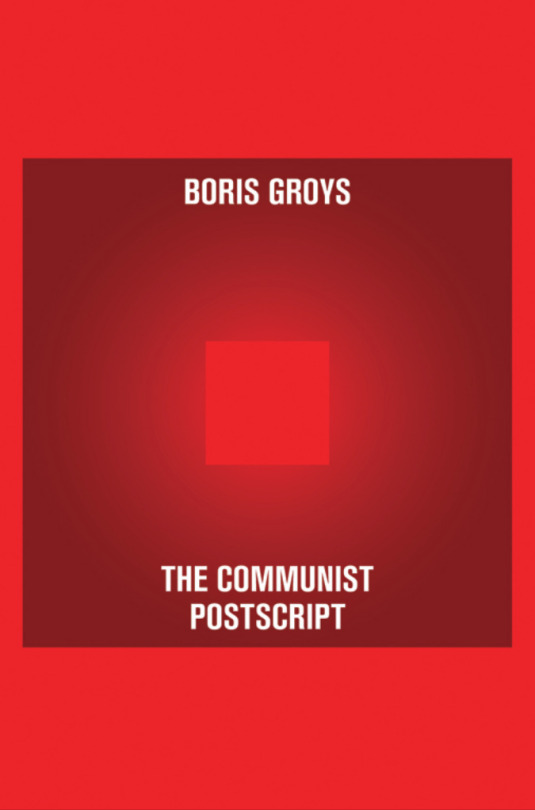
Introduction
The subject of this book is communism. How one speaks about communism depends on what one takes communism to mean. In what follows, I will understand communism to be the project of subordinating the economy to politics in order to allow politics to act freely and sovereignly. The economy functions in the medium of money. It operates with numbers. Politics functions in the medium of language. It operates with words - with arguments, programmes and petitions, but also with commands, prohibitions, resolutions and decrees. The communist revolution is the transcription of society from the medium of money to the medium of language. It is a linguistic turn at the level of social praxis.
Thus, it is not enough to define man as a speaking being, as is generally done in modern philosophy, notwithstanding all the subtleties and differences that distinguish one individual philosophical position from another. So long.
As humans live under the conditions of the capitalist economy, they remain fundamentally mute because their fate does not speak to them. If a human is not addressed by his or her fate, then he or she is also incapable of answering it. Economic processes are anonymous, and not expressed in words. For this reason, one cannot enter into a discussion with economic processes; one cannot change their mind, convince them, persuade them, or use words to win them over to one's side. All that can be done is to adapt one's own behavior to what is occurring. Economic failure brooks no argument, just as economic success requires no additional discursive justification. In capitalism, the ultimate confirmation or refutation of human action is not linguistic but economic: it is expressed not with words but with numbers. The force of language as such is thereby annulled.
Humans will first truly become beings who exist in language and through language only once fate is no longer mute and no longer governs at a purely economic level but is instead formulated discursively and decided politically from the outset, as is the case in communism. Humans thereby gain the possibility of arguing, protesting, and agitating against the decisions.

INTRODUCTION XVII
of fate. Such arguments and protests may not always prove effective. They may often be ignored or even suppressed, but they are not as such meaningless. It is entirely meaningful and justified to oppose political decisions in the medium of language because those decisions were themselves reached in the medium of language. Under capitalist conditions, by contrast, every criticism and every protest is fundamentally senseless, for in capitalism, language itself functions as a commodity, that is to say, it is inherently mute. Discourses of critique and protest are recognized as successful when they sell well, and to have failed when they sell poorly. Thus in no respect can these discourses be distinguished from other commodities, which are equally silent—or speak only in self-advertisement. Criticism of capitalism does not operate in the same medium as capitalism itself. In terms of their media, capitalism and its discursive critique are incompatible and so can never encounter each other. Society must first be altered by its linguistification if it is to become subject to any meaningful critique. Thus we can reformulate Marx's famous thesis that philosophy should not interpret the world but instead change it: for society to become subject to criticism, it must.

XVIII INTRODUCTION
First, become communist. This explains the instinctive preference for communism felt by all those equipped with critical consciousness, for only communism performs the total linguistification of human fate that opens the space for a total critique.
Communist society can be defined as one in which power and the critique of power operate in the same medium. If the question is posed, therefore, of whether the regime of the former Soviet Union should be regarded as communist—and this question appears unavoidable whenever communism is discussed today—then, in the light of the definition given above, the answer is yes. The Soviet Union went further towards realizing the communist project historically than any other preceding society. During the 1930s, every kind of private property was completely abolished. The political leadership thus gained the possibility of taking decisions that were independent of particular economic interests. But it was not that these particular interests had been suppressed; they simply no longer existed. Every citizen of the Soviet Union worked as an employee of the Soviet state, lived in housing that belonged to the state, shopped in state stores, and traveled through the state's territory by means.
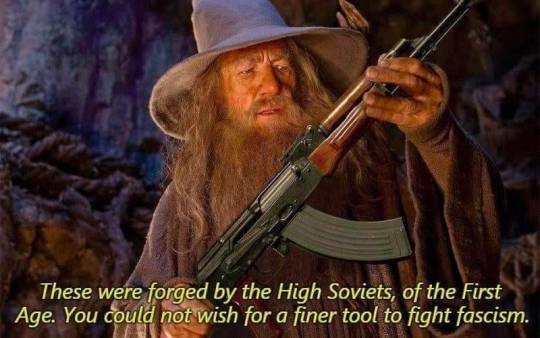
of state-run transport. What economic interests could such a citizen have? Only the interest that affairs of state would improve, so that the citizen of this state would be better able to profit—no matter whether legally or illegally, through work or through corruption. In the Soviet Union, a fundamental identity between private and public interest thus prevailed. The single external constraint was military: the Soviet Union had to defend itself against its external enemies. By the 1960s, however, the military capabilities of the country had become so great that the possibility of belligerent attack from outside could be rated as extremely improbable. From that moment, the Soviet leadership stood in no 'objective' conflict: it had no internal opposition, and it was also subject to no external constraints that could limit its administrative powers over the country. Its practical decisions could therefore be guided solely by its independent political reason, its own inner convictions. Granted, this political reason—because it was dialectical reason—led the Soviet leadership to abolish communism of its own free will. Yet this decision, in no way alters the fact that communism must be considered to have been realized in the Soviet Union. To the contrary: as will.
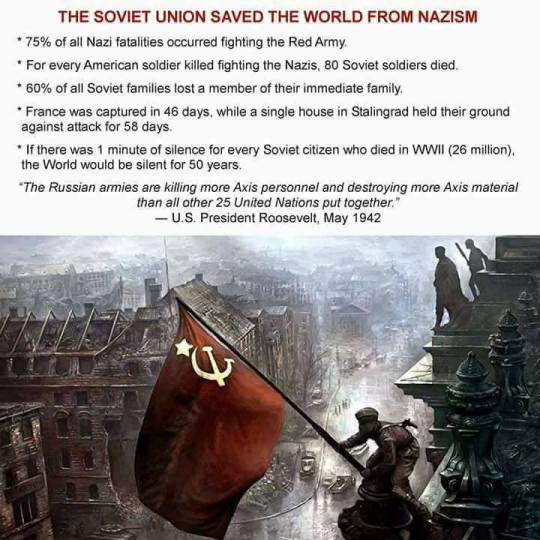
XX INTRODUCTION
Be shown in what follows, it is this decision that makes the realization, the embodiment, the incarnation of communism complete.
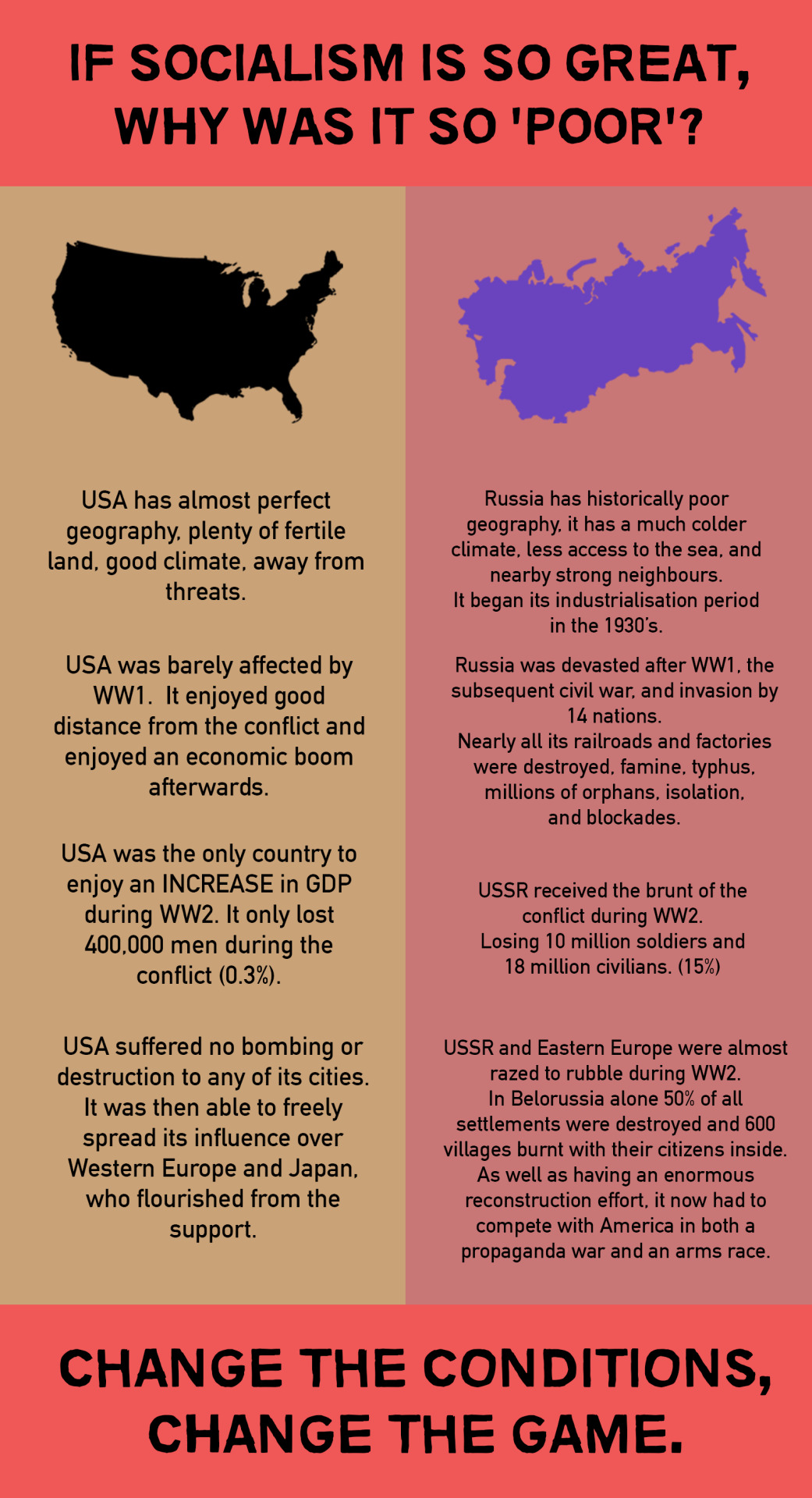
In any case, it cannot be said that the Soviet Union failed economically, for economic failure is only possible in the market. But the market did not exist in the Soviet Union. Hence, neither the economic success nor the economic failure of the political leadership could be established 'objectively', that is to say, neutrally, non-ideologically. Certain commodities were produced in the Soviet Union not because they sold well on the market, but because they conformed to an ideological vision of the communist future. And on the other hand, those commodities that could not be legitimated ideologically were not produced. This was true of all commodities, not just the texts or images of official propaganda. In Soviet communism, every commodity became an ideologically relevant statement, just as in capitalism every statement becomes a commodity. One could eat communistically, house and dress oneself communistically—or likewise non-communistically, or even anti-communistically.
This meant that in the Soviet Union, it was in theory just as possible
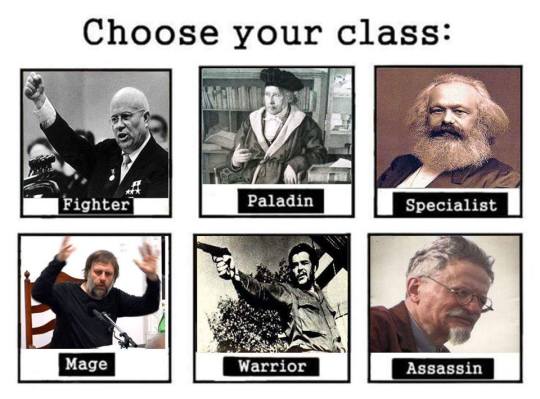
to protest against the shoes or eggs or sausage then available in the stores as it was to protest against the official doctrines of historical materialism. They could be criticized in the same terms because these doctrines had the same original source as the shoes, eggs, and sausage—namely, the relevant decisions of the Politburo of the Central Committee of the CPSU. Everything in communist existence was the way it was because someone had said that it should be thus and not otherwise. And everything that is decided in language can be criticized linguistically as well.
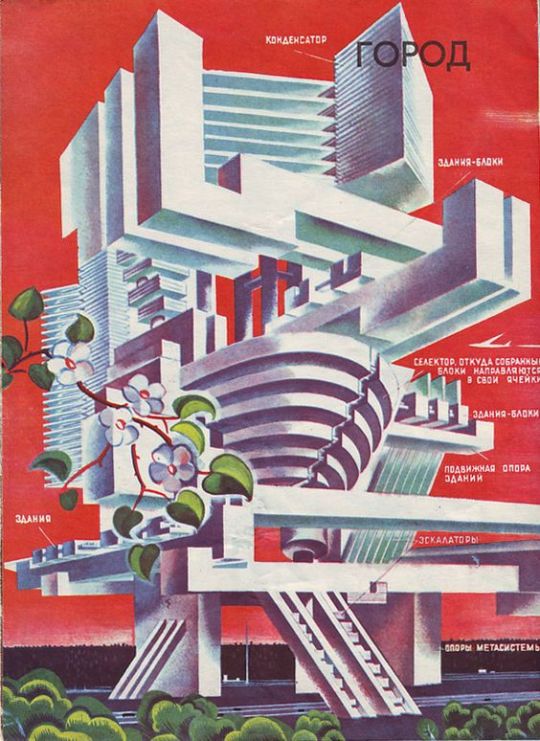
The question of whether communism is possible is, therefore, profoundly connected to the question of whether government, organization, and political administration can be carried out in language and through language. This central question can be formulated as follows: can language as such ever exercise sufficient force for society to be governed by linguistic means at all—and if so, under what conditions? This possibility is often flatly denied: in our era especially, the view predominates that language as such has no force at all and is entirely powerless. This assessment accurately reflects the situation of language under capitalist conditions. In capitalism, language is indeed powerless. On the

XXII INTRODUCTION
Basis of this understanding of language, it is also generally assumed that in communism the ruling apparatuses characteristically acted behind a facade of official language and compelled people to accept the language of power. And this assumption is not entirely unjustified. Indeed, this suspicion appears to be sufficiently confirmed by the long history of political repression in communist countries.
But this leaves open the question of why these oppressive apparatuses acted in favor of one particular ideological conception and not in favor of some alternative conception. For the loyalty of these apparatuses with regard to a particular ideology cannot be taken for granted. To be loyal and to remain loyal, these apparatuses had first to be persuaded, to be won over. Otherwise, they would remain immobile and fail to act, as was indeed the case at the end of the communist states of Eastern Europe. Moreover, under communist conditions, these apparatuses cannot be cleanly separated from the rest of society, for in a society which consists exclusively of state employees—and Soviet society was such a society—the question about who oppresses whom, and how, cannot be posed in the same way as it is in a society in which
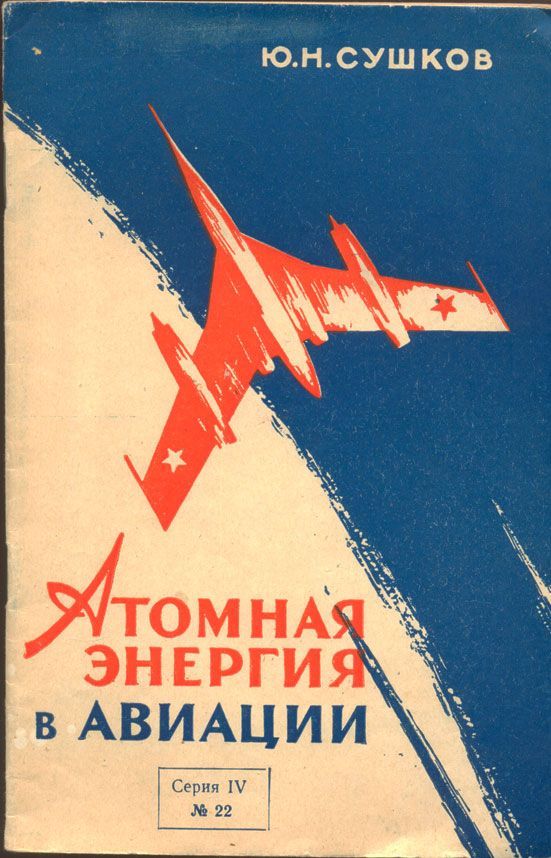
INTRODUCTION XXIII
the apparatuses of power are more or less cleanly separated from civil society. When state violence in communist states is considered, it must therefore not be forgotten that this violence was conveyed through language—through commands and decrees with which one might comply but equally might not. The leaderships of the communist countries understood this much better than their opponents did. It was for this reason that these leaderships invested so much force and energy into shaping and maintaining the language of official ideology and were so incensed by minimal deviations from it. They knew that outside of language they actually possessed nothing—and that if they lost their control over language, they would lose everything.
The theory of Marxism-Leninism is ambivalent in its understanding of language, as it is in most matters. On the one hand, everyone who knows this theory has learned that the dominant language is always the language of the dominant classes. On the other hand, they have learned too that an idea that has gripped the masses becomes a material force, and that on this basis Marxism itself is (or will be) victorious because it is correct. In what follows, it will be shown that the
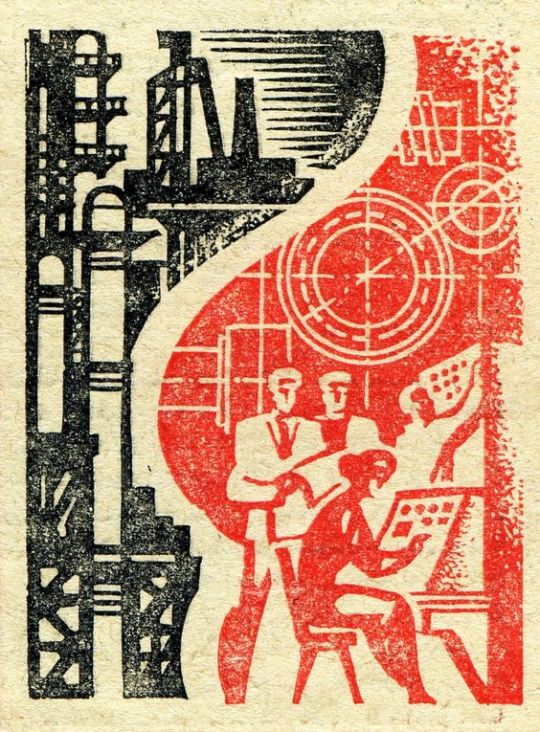
XXIV INTRODUCTION
structure of communist society depends precisely on
this ambivalence. But first another question needs
to be explored: how ought this ‘ideal’ linguistic
compulsion function — this compulsion that can ‘seize’
individual people and potentially also the masses — if
it is to transform thereby into a revolutionary force of
constitutive power?
#the communist post script#Boris groys#Groys#Soviet union maxxing#ussr#lingustification of society#marxism#marxist leninist#communism#marxism-leninism#lenin
1 note
·
View note
Text
«Cada vez más, se repite la exhortación a alejarse del diseño político y la cuestión de la imagen para volver sobre el contenido. Tales quejas ignoran el hecho de que bajo el régimen del diseño moderno, el posicionamiento visual de un político en el campo de los medios masivos es justamente el que hace una afirmación crucial sobre su acción política —o incluso la constituye como tal. El contenido, en cambio, es completamente irrelevante, porque cambia constantemente. Por lo tanto, el público general no está para nada equivocado al juzgar a un político de acuerdo a su apariencia, es decir, de acuerdo a su credo básico a nivel estético y político, y no de acuerdo a programas arbitrariamente cambiantes y a los contenidos que apoya o formula.»
—Boris Groys. “Volverse público. La transformación del arte en el ágora contemporánea”. Caja Negra. 2016.

0 notes
Text
『ケアの哲学』 ボリス・グロイス(Boris Groys)

『ケアの哲学』
ボリス・グロイス(Boris Groys)著
河村彩 訳
刊行日┃ 2023年6月
装 丁┃ 村上真里奈
発 行┃ 人文書院
「生き残るためには個人は好かれなければならない。…[かくして]かつては信仰が存在していた場所に、デザインが現れた。…セルフデザインとは自己防衛とセルフケアの形式である」
「医療は宗教の場を占め、病院は教会に取って代わ」り、美術館は作品を修復し、既往歴を含む個人データはアーカイヴされ、かくして制度化されたケアの体制が全面化する。
書誌情報の詳細は以下をご覧ください。
また、ボリス・グロイスには、『流れの中で――インターネット時代のアート』(河村彩 訳、人文書院 2021��)もあります。
http://www.jimbunshoin.co.jp/book/b591542.html

ボリス・グロイス Boris Groys
1947年、東ドイツ生まれ。美術批評家。現在、ニューヨーク大学特別教授。レニングラード大学に学んだ後、批評活動を開始。1981年に西ドイツへ亡命。ロシア、ヨーロッパ、米国をまたぐ旺盛な活動で知られる。著書に、『全体芸術様式スターリン』(亀山郁夫、古賀義顕訳、現代思潮新社、2000年)、『アート・パワー』(石田圭子ほか訳、現代企画室、2017年)、『流れの中で』(河村彩訳、人文書院、2021年)など。
0 notes
Text
The Things They Say
Lavrov said that Prigozhin’s armed mutiny could not be termed anything more than a “scrape.” Well, yeah… After the rebels seized the headquarters of the Southern Military District, which coordinates the main grouping of Russian federal forces waging war in Ukraine, along with Deputy Defense Minister Yevkurov, seized Rostov-on-Don, a city of one million people, and a military airfield, shot down…

View On WordPress
#Alexander Zhelenin#Andrei Arkhangelsky#Boris Groys#Elizaveta Fokht#Hanna Liubakova#Jeremy Morris#Marina Vasilieva#oDR#Russian teenagers#Sergei Lavrov#Sergey Kartapolov#Tom Rowley#Vladimir Ananich#Yevgeny Prigozhin
0 notes
Text
''Volverse público'' Boris Grois
reflexión
-poética v/s estética:
la actitud estética es la actitud del espectador, esto dentro de la tradición filosófica y su disciplina, se vincula al arte y lo concibe desde la perspectiva del espectador que le exige al arte la llamada experiencia estética. esta ya sea grotesca o agradable, el autor hace mención de una estética afirmativa cuya finalidad en lo contemporáneo no se logra cuando se trata de una estética que no cumple los parámetros utópicos al ser parte de una sociedad comercializada y mercantilizada. pero si el espectador no fuera que sea parte de este espacio temporal actual no seria capaz de tener aquella educación estética, por lo tanto se hablaba de una subordinación del artista y del arte hacia una producción y consumo de este, donde el artista vendría siendo un ''proveedor de experiencias estéticas'' y el cual terminaba siendo un esclavo del observador, esto se daba bastante en el mecenazgo pero al cambiar los mecanismos sociales ahora el artista no trabaja para la iglesia sino para hechos sociales. el arte profesional se rige tanto como herramienta de educación y gusto estético. pero una vez dejada de lado esa educación el arte puede replicar la vida misma, ahora el arte se revela como algo que puede mutar. para el punto de vista estético el arte no toma mucha relevancia, sino que es una herramienta para el desarrollo de la perspectiva estética, donde al final el discurso estético termina siendo desvalorizado. se podría decir que hay una subordinación de la teoría estética a la sociología.
En el siglo xx, el acceso relativamente fácil a las cámaras digitales de fotografía y video combinado con Internet, ha alterado la relación numérica tradicional entre los productores de imágenes y los consumidores.
hoy en día hay mas gente interesada en producir imágenes que en mirarlas, y eso ha logrado un cambio en la tradición estética la cual pierde su relevancia social. la contemplación estética era desinteresada, pero ahora ya que el sujeto no estaba interesado en el objeto de contemplación, ahora en cambio ya que se vuelve individualizable y publico hay una importancia en su existencia y capacidad. la persona publica realiza perfiles anónimos a propósito, se vuelve políticamente responsable. así la dimensión política tiene menos que ver con el impacto en el espectador sino con las decisiones que conducen a su emergencia.
esto implica que el arte contemporáneo debe ser analizado en términos de poética, no estéticos. la perspectiva ahora no es de parte del consumidor, sino del productor. se invierte, quienes comienzan con esto son Kandinsky, Malevich, Hugo Ball, y Duchamp. que crearon narrativas publicas en las que actuaron como personas públicas colocando al mismo nivel artículos periodísticos, docencia, escritura, performance y producción visual. parece incluso más legítimo pensar estas prácticas artísticas como transformaciones radicales desde la estética a la poética, más específicamente hacia la auto poética, hacia la producción del propio Yo público. Estas obras son la encarnación visible de la nada o, lo que es lo mismo, de la pura subjetividad. Y en este sentido son obras puramente auto poéticas, que le otorgan forma visible a una subjetividad que ha sido vaciada, purificada de todo contenido específico.
La tematización de la nada y de la negatividad en manos de la vanguardia Es simplemente signo de un nuevo comienzo, de una metanoia que mueve al artista desde cierto interés por el mundo externo hacia la construcción auto poética de su propio Yo. Hoy en día, esta práctica auto poética puede ser fácilmente interpretada como un tipo de producción comercial de la imagen, como el desarrollo de una marca o el trazado de una tendencia. No hay duda de que toda persona 'Pública es también una mercancía que cada gesto hacia lo público sirve a los intereses de numerosos inversores y potenciales accionistas. Es claro que los artistas de vanguardia se convirtieron en una marca comercial hace tiempo. Siguiendo esta línea de argumentación, es fácil percibir cualquier gesto auto poético como un gesto de mercantilización del Yo y por lo tanto, iniciar una crítica a la práctica auto poética como una operación encubierta, diseñada para ocultar las ambiciones sociales y la avidez por el dinero. Aunque a primera vista parece convincente, surge otra cuestión.
si bien se sabe que hoy en día toda respuesta va dirigida a la mercantilización, la autopoiesis entonces se usa como medio de la comodificacion del yo, la búsqueda de intereses privados detrás de cada persona pública implica proyectar las realidades actuales del capitalismo y el mercado más allá de sus fronteras históricas.
-reflexión: ahora en este capitulo se menciona que lo que en su momento rigió fue la estética, los pensadores filosóficos también influyeron, pero en los tiempos modernos no cuenta del todo. el artista no esta subordinado por una entidad totalitaria y dentro de la mentalidad individualista es capaz de dar su propio veredicto de las cosas por medio de una representación conceptual que termina siendo poética porque tal como se menciona en el capitulo artistas como duchamp dan a entender un mensaje subjetivo que hace de las demás personas sus propios filósofos al intentar comprender la poética de cada artista, da una libertad de crear un juicio personal en cada espectador. y a la vez genera un proceso de auto-descubrimiento del yo de cada artista, precisamente por aquella libertad que se genera en los tiempos modernos dentro del mundo del arte. esto lo relaciono también con la influencia de estados unidos, país que no contenía periodo medieval por lo tanto no existían reyes ni dioses que se interpusieran en la influencia de cada individuo.
-los trabajadores del arte, entre la utopía y el archivo
el arte no es autónomo depende de condiciones sociales económicas, técnicas y políticas, de producción distribución y presentación estéticas mas generales. durante las ultimas décadas estas condiciones cambiaron gracias al internet. lo que antiguamente regia el modelo de arte era el museo. ahora internet ofrece múltiples opciones para el arte en la cual no tiene la misma selección que el museo, donde nace la pregunta: porque algunas obras son seleccionadas para el museo y otras no? los motivos eran que fueran de características positivas pero la nueva pregunta era que hacia de esas obras mas dignas de esas características que las demás? nace una teoría protestante por ello y se le critica duramente al museo.
En el internet, en cambio, no hay censura estética, pero como es el funcionamiento de internet como un tacho de basura de información, estos se quejan porque su trabajo no alcanza a tener la visibilización esperada. y en donde el mundo del arte esta fragmentado y donde finalmente cada uno busca su tema de interés ignorando el resto. pero internet no es infinita, sino que tiene su finitud y observabilidad la cual con ejemplo de Google se comprende el nivel de vigilancia y control sobre las masas. donde los individuos intentan conservar su privacidad mediante contraseñas. lo que hace que hoy la subjetividad sea una cuestión técnica: el sujeto contemporáneo se define como dueño de un par de claves que los demás no saben. y el cual al igual que el clásico tiene secretos que nadie mas sabe. ahora en la internet el sujeto demuestra su careta publica donde a la vez también resguarda secretos, pero estos a diferencia del pasado están ''técnicamente'' guardados, internet se vuelve el espacio de guerras por la privacidad y estas toman lugar solo porque internet es el lugar de la ''transparencia'' . que significa esta transparencia para el artista? el problema con el internet no es que sea de distribución, sino como lugar de trabajo. bajo el regime del museo el arte se mantenía en un espacio de exhibición en especifico en cambio con internet borra esta tradición donde el proceso de producción estética esta siempre expuesto en exhibición. los artistas quienes trabajaban en instancias privadas ahora están expuestos al mismo grado de vigilancia que loa demás trabajadores comunes y corrientes. se menciona una monetización hermenéutica la cual significa que la técnica esta expuesta en el internet y se le pone precio a ella. existe una mirada positiva ante esto gracias a que el artista no necesita exponer una obra final porque el proceso exhibido en las redes seria el trabajo final. el autor hace una similitud entre la religión donde uno ya no decide por si mismo sino que existe por medio de un dios que lo observa en este caso seria la mirada constante del internet. nace la pregunta: porque deberíamos negar la transparencia total? opina que internet es como el infierno mas que el cielo, donde dicta una frase de Sartre que dice: ''el infierno es estar bajo la mirada del otro'', la mirada del otro nos cosifica y esto niega la oportunidad de cambio. Sartre entendía al humano como quien lucha contra la identidad que le había otorgado la sociedad. donde la solución pareciera ser la reclusión de la sociedad donde por fin se le permite al genio artístico crear sin la intención de una sociedad. es por eso que el sujeto de la practica estética tradicionalmente quiere permanecer oculto y donde la mirada maligna niega que tengamos secretos y nos reduce a lo que esa mirada ve y registra.
la practica artística se entiende como individual y personal, lo individual se entiende por diferente de los demás y mas bien el rechazo a ser identificado de acuerdo con los criterios generales de identificación. los artistas modernos practicaron una revuelta contra la identidades que les impusieron el estado, escuela, etc. donde se preguntaban realmente el verdadero yo'' y donde prevalecía la intención de poder sobre si mismo. existe una lucha entre la persona publica y la identidad nominal, tiene una dimensión publica y política, porque esta dirigida contra los mecanismos de identificación dominantes. es por eso que el artista moderno dice no me miren a mi sino a mi arte. donde ocupa su identidad nominal para jugar con ellas. la modernidad fue el deseo de utopía donde en realidad era el deseo de construir ese verdadero yo mejorado. el proyecto artístico se vuelve revolucionario porque busca la transformación total de la sociedad. aquí el verdadero yo se resocializa por medio de la creación de la verdadera sociedad.
-reflexión: finalmente la utopía dentro del archivo se presenta de manera que el artista tiene mas espacio donde abarcar su propia utopía, su propio estilo sin necesidad de la aprobación de un museo, también de manera que logra prevalecer durante el tiempo mas allá incluso de su deceso el archivo mantiene su trabajo intacto. pero el problema vendría siendo que al igual como lo menciona Boris, internet es finito. por lo tanto ese archivo podría volverse nulo cosa que provocaría la eliminación de la historia y la vivencia de cada artista; Donde a la vez se pierde el trabajo manual, que resulta ser un problema serio para la sociedad mecanizada de hoy y el futuro. por lo tanto y según ese contexto pienso que el archivo esta lejos de sostener una idea de utopía, porque esta maniobrado por seres humanos que si bien quisieran y como ha sucedido en otros momentos de la historia, podrían eliminar todo rastro de registro y expresión artística de una comunidad de personas. controlando la historia y la poética de estos artistas posmodernos, y de esa manera controlar las masas a su parecer.
0 notes
Text
Matty’s “speech” in FL
Okay, so someone asked for an explanation of Matty’s speech before IAWD(S). Here it is.
First, I should note that it’s not Matty’s original words. It’s an excerpt from an essay about sincerity and the aesthetization of politics in our current culture, written by art critic Boris Groys. You can read it here (it appears as one among many that he published in a collection as journal entries).
A few things to note about the essay:
It shares a lot of common themes with S/ATVB in that it talks about the conception of mass media, the effect it has on culture and one own self-image, the way we’ve turned politics into a form of media to consume, etc. so that’s the context in which it’s operating.
It discusses “self-design” (i.e. the curating of a specific version of yourself to present to the public) in a similar way that matty thinks about his stage persona.
The essay is trying to address the issue of arts relationship to politics today.
Groys argues that, with the proliferation of mass media and social media platforms, these modes have replaced the artists (re)presentation of politics. The vast production of images of news, war, etc take the place of the artist.
even more to the point, the artist is now depicted and presented to us via media as well. So, the artist becomes the artwork instead of being the one who produces it.
this, Groys suggests, causes a certain kind of anxiety for artists because their job is to make stuff, and now, they’re in a position where the world is making them.
In the age of social media, with everyone sort of turning themselves and each other into “artworks” by curating and presenting specific versions of themselves online/ in public, Groys says that making something into art or aesthetizing it has become a way to cause suspicion. Like, we all have this awareness that social media “isn’t real life” that these images are edited and present a skewed and fabricated version of reality.
so, the way we encounter artwork (including public version of each other) is with suspicion. We get this feeling that if something looks aesthetic on social media, then the aesthetizing of it must be to hide the fact that it’s ugly/ bad/ unimpressive in reality. Instead of making something aesthetic being a glamorizing or celebratory act, it’s a doubt-inducing act.
Because everyone is so aware of the artificial-ness all the time, we have, in turn started to try to design our public image to be about sincerity and authenticity. In order to connect with others who view us publicly and establish trust with them.
Because the aesthetic is suspicious to us, we start to equate sincerity with shitty / bad/ugly stuff. We are suspicious of people who seem genuinely kind and sweet and pretty etc. but when we see someone behaving like a dickhead, we believe they’re being sincere.
Now, to the passage that Matty read onstage,
summarized, the passage says:
The only way to show authenticity and sincerity is to reveal nastiness. So, the nastiest celebrities and politicians are often the most famous and the most recognized for their truthfulness.
if this is getting confusing, think about Trump for example: where everyone is all about being kind or woke or politically correct, his dickhead gets in front of a camera and says “grab them by the pussy” or “immigrants are bringing us gangs” or “Hilary is ugly and that’s why Bill cheated on her” or whatever. That’s the nastiest shit ever. But people think “well, say whatever you want about the guy, at least he’s honest and doesn’t lie like politicians do.” Does that make sense?
the problem with this is, though, that when you are being sincere by revealing your own ugliness in public you’re not really breaking the cycle. It’s simply a “symbolic sacrifice” that feeds into the idea that good/ pretty/ aesthetic things are fake and nasty/ bad/ ugly things are true. So you’re just sticking to the system and profiting off of it confirming people’s suspicion.
why did Matty read this passage onstage?
this is the part that is my own opinion and not the essay. Obviously, im not inside of Matty’s mind, so I can only guess and speculate.
in my opinion, it’s because (as I’ve talked about in my reviews of SAYVB) so much of the show is about his relationship to social media, how the public perceives him, etc. and within the largest context of the ethos of the band, Matty has always been curious about what it means to be sincere in the age of irony (sincerity is scary). he’s thinking about how the world perceived him as a public figure, artist, and celebrity and what, to the public eye, counts as real sincerity.
The other day he commented on how people called his Malaysia protest “performative.” The idea that he’s a shit person doing it because of a white savior complex, or just to perform wokeness and stuff is easier and makes more sense to people than the fact that he genuinely gives a fuck. Even though he’s been consistently speaking up for LGBTQ+ communities since day 1. But it’s cuz our culture is so cynical, the only honesty we believe is bad intention and we equate the bad with the real thinking that any public good is suspicious and designed to cover up the bad.
This is also just true more generally of how people view matty. We’ve all seen the headlines. It’s not JUST about the Mayalsia thing. People are so quick to see all his good attributes as fake and all his bad ones as “real.” Which, as he has pointed out many times before, is basically a symptom of the current state of leftist politics. We think that calling each other out or “exposing” the shit truth behind the aesthetic is what being real and being virtuous is about and we don’t actually do much else.
all of this is to say that this passage is commentary on the themes that SATVB, and the 1975 have always been thinking about.
28 notes
·
View notes
Text
been noticing a lot of him&her in place of them in this boris groys text and I just hit a passage where he uses it/its instead . kind of a fascinating choice imo
6 notes
·
View notes
Text
Boris Groys, the aesthetic philosopher—that's who I was forgetting. He's brilliant; his work is sort of congruent with my own (see link above).
2 notes
·
View notes
Text
“I also do not believe that art, if understood in this way, can be truly democratic. And now I will try to explain why.
Our understanding of democracy is based on a conception of the national state. We do not have a framework of universal democracy transcending national borders, and we never had such a concept in the past. So we cannot say what a truly universal, egalitarian democracy would look like. In addition, democracy is traditionally understood as the rule of a majority, and of course we can imagine democracy as not excluding any minority, and as operating by consensus, but still, this concensus will necessarily include only ‘normal, reasonable’ people. It will never include ‘mad’ people, children, and so forth.
It will also not include animals. It will not include birds, although, as we know, St. Francis preached sermons to animals and birds.
It will also not include stones, although we know from Freud that there is a drive in us that compels us to become stones.
It will also not include machines, even if many artists and theorists have wanted to become machines.
In other words, an artist is someone who is not merely social, but supersocial, to use the term coined by Gabriel Tarde in the framework of his theory of imitation. The artist imitates and establishes himself or herself as similar and equal to too many organisms, figures, objects, and phenomena that will never become part of any democratic process.”
Boris Groys
10 notes
·
View notes
Text
English, possibly more so than countless other languages, can be argued to have embraced and internalized the subordinate social role of language within the framework of capitalism.
0 notes
Text
4 notes
·
View notes
Text
「Žižek ci svela e ri-vela anzitutto una cosa. Che il comunismo non è una teoria tra le altre, bensì la forma stessa, il perimetro di ogni possibile teoria, lo spazio iniziale e finale — totale — di ogni pensamento pubblicamente inteso. Con le sue parole: «One should bear in mind that Communism begins with what Kant called “public use of reason”, with thinking, with the egalitarian universality of thought». Così tutte le volte che teorizziamo qualcosa, che pensiamo qualcosa, siamo già dentro il comunismo, abitiamo il κοινόν, il genus. L’idea. Communismus — Marx, nei Manoscritti, scrive la parola così, senza Κ — è il calco moderno (e politico) del termine greco ϑεωρία. Anticomunismo è con ciò lo stesso che antiteoretico, lo stesso che antifilosofico. E questo, come dice Boris Groys (un altro slavo, un altro stiavo), «spiega l’istintiva inclinazione al comunismo riscontrabile in tutte le persone dotate di coscienza critica».」
6 notes
·
View notes
